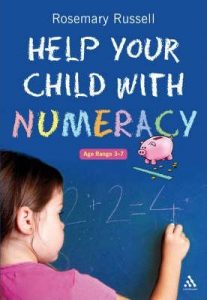Education is Compulsory, Schooling is Not: A Guide to Homeschooling in the UK
For parents in the UK, understanding the options available when it comes to educating children can feel overwhelming, especially when considering alternatives to traditional school.
Contrary to popular belief, while education is indeed compulsory for children aged 5 to 18, schooling is not.
This distinction means that parents can legally educate their children at home, as long as they provide a “suitable” education.
Here’s a friendly guide to homeschooling in the UK, covering essential points, key regulations, and some practical tips.
Understanding Homeschooling in the UK
Homeschooling, or elective home education (EHE), is a growing choice among UK parents.
It allows for a personalised approach to learning, which can be ideal for children with specific needs, unique interests, or simply a learning style better suited to one-on-one teaching.
Unlike traditional school settings, homeschooling enables parents to tailor the curriculum and learning pace to their child’s strengths and preferences.
The main legal requirement is that parents must provide a full-time education suitable to the age, ability, aptitude, and any special needs of the child.
The UK government doesn’t specify subjects or provide a curriculum for homeschooling families, so you have considerable freedom in how you structure your child’s education.
However, the education must still be efficient and suitable to prepare the child for adulthood.
UK Rules and Regulations for Homeschooling
While homeschooling is legal in the UK, there are a few essential rules and regulations to bear in mind:
Notify the School (If Applicable): If your child is already enrolled in a school, you must inform the headteacher in writing that you intend to withdraw your child to home school.
This is especially important if your child attends a state school. In many cases, children with Education, Health, and Care (EHC) plans, especially if they are in a special school, require permission from the local council to be withdrawn for homeschooling.
Local Authority Oversight: Each local authority (LA) is responsible for ensuring that every child receives a suitable education, but they approach homeschooling differently across regions.
Some councils may reach out to homeschooling families annually to inquire about their educational plans.
While you’re not obligated to permit home visits or submit specific work samples, responding to these inquiries can help demonstrate your commitment to your child’s education.
Curriculum Freedom: Unlike schools, you’re not required to follow the National Curriculum in a homeschooling environment.
This means that while you can choose to incorporate subjects like English, math, and science, you also have the flexibility to design a curriculum that aligns with your child’s unique interests and needs, including art, life skills, coding, music, or any other area of passion.
Testing and Exams: There are no mandatory tests for homeschooled children.
However, many parents choose to help their children prepare for GCSEs or A-levels as they reach secondary education age.
There are resources and private exam centers available across the UK, though parents need to organize and fund these exams independently.
Socialisation Opportunities: One concern parents often have about homeschooling is socialisation. Fortunately, there are many homeschooling groups, both locally and online, where families can meet, share resources, and attend events.
Organised meet-ups, field trips, and activities can ensure your child socialises regularly and forms friendships.
Record Keeping: It’s good practice to keep a record of your child’s progress and achievements.
While there is no legal requirement to maintain records, doing so can be useful if the local authority inquires about your homeschooling approach.
Do’s and Don’ts of Homeschooling in the UK
Do’s:
- Do Research and Plan: Invest time in researching different educational philosophies and curriculums to find an approach that suits your family.
- Do Connect with Other Homeschooling Families: Join local or online groups for support, resources, and social opportunities.
- Do Stay Organised: Keep a loose plan or schedule for each week, and document progress to help you stay on track.
- Do Encourage Interests: Follow your child’s passions and interests, making learning enjoyable and personalised.
Don’ts:
- Don’t Ignore the Local Authority: Ignoring LA inquiries can lead to misunderstandings. Responding politely can help show your commitment.
- Don’t Isolate Your Child: Balance home learning with social activities to ensure well-rounded development.
- Don’t Feel Pressured to Mirror School: Homeschooling doesn’t need to look like traditional school; it’s okay to be flexible.
- Don’t Skip the Basics: While freedom is great, ensure your child masters foundational skills in literacy and numeracy.
Homeschooling can be a rewarding journey, offering a unique path for your child’s development. By staying informed and connected, you can provide a rich and fulfilling education right at home.
Home School Maths Resources
-
Product on sale
 Fun to Learn Numbers and Counting (Wipe-Clean Book 4yrs+)Original price was: £2.99.£2.50Current price is: £2.50.
Fun to Learn Numbers and Counting (Wipe-Clean Book 4yrs+)Original price was: £2.99.£2.50Current price is: £2.50. -
Product on sale
 Fractions and Decimals Activity Book (Paperback)Original price was: £6.99.£5.60Current price is: £5.60.
Fractions and Decimals Activity Book (Paperback)Original price was: £6.99.£5.60Current price is: £5.60. -
Product on sale
 Maths Adventure Stories: Infinity Squad to the Rescue (Paperback)Original price was: £4.99.£3.99Current price is: £3.99.
Maths Adventure Stories: Infinity Squad to the Rescue (Paperback)Original price was: £4.99.£3.99Current price is: £3.99. -
Product on sale
 SATs Practice (Ages 9-10)Original price was: £18.99.£14.99Current price is: £14.99.
SATs Practice (Ages 9-10)Original price was: £18.99.£14.99Current price is: £14.99. -
 Help your Child with Numeracy (3-7)£10.99
Help your Child with Numeracy (3-7)£10.99 -
 Subtraction 5+ Flash Cards ( Help with Homework)£4.99
Subtraction 5+ Flash Cards ( Help with Homework)£4.99
……………………………………………………………………………………………………………………………………………………………………………………………..
Home School English Resources
-
Product on sale
 Ready to Write: Lets Learn Phonics (Paperback)Original price was: £4.99.£4.50Current price is: £4.50.
Ready to Write: Lets Learn Phonics (Paperback)Original price was: £4.99.£4.50Current price is: £4.50. -
Product on sale
 Wipe-Clean First Letters (Wipe-Clean Learning)Original price was: £5.99.£4.50Current price is: £4.50.
Wipe-Clean First Letters (Wipe-Clean Learning)Original price was: £5.99.£4.50Current price is: £4.50. -
Product on sale
 Let’s do Comprehension 6-7 (with stickers)Original price was: £4.99.£4.60Current price is: £4.60.
Let’s do Comprehension 6-7 (with stickers)Original price was: £4.99.£4.60Current price is: £4.60. -
Product on sale
 Let’s do Spelling 7-8 (with stickers)Original price was: £3.99.£3.60Current price is: £3.60.
Let’s do Spelling 7-8 (with stickers)Original price was: £3.99.£3.60Current price is: £3.60. -
 Have a go English Tests: Ages 9-10£3.99
Have a go English Tests: Ages 9-10£3.99 -
 Help your Child with Literacy (3-7)£10.99
Help your Child with Literacy (3-7)£10.99
……………………………………………………………………………………………………………………………………………………………………………………………..
Educational Toys
Join our mailing list
Sign up to our Emailing List & Get the Latest Information and Offers on Resources
Thank you for joining !
Something went wrong.




















